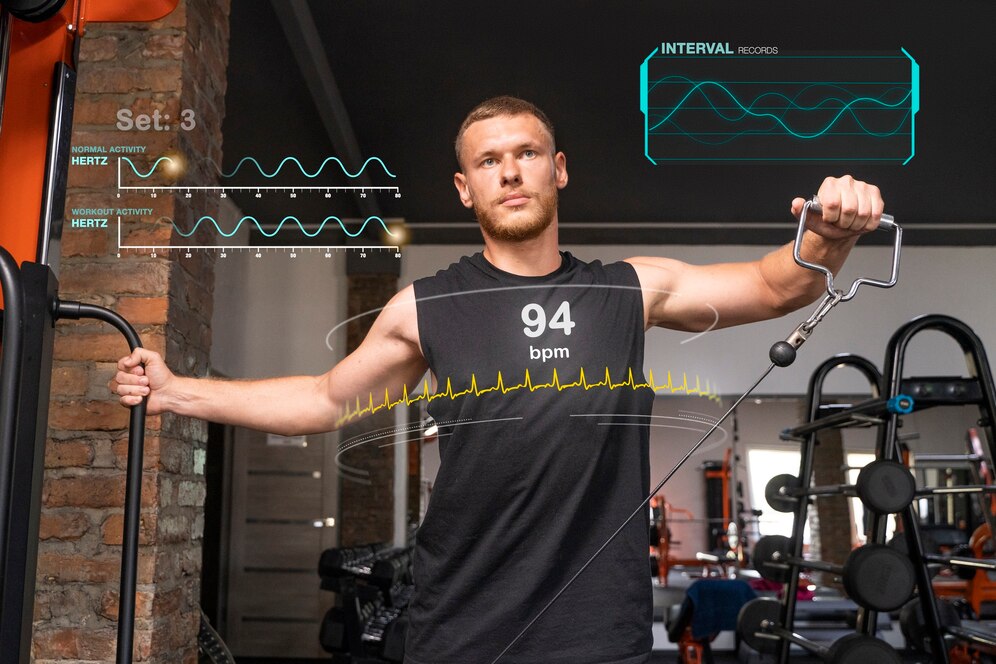Outline
- Introduction
- Explaining the significance of gaining muscle.
- Setting realistic expectations.
- Factors Affecting Muscle Gain
- Genetics
- Training intensity and frequency
- Nutrition
- Rest and recovery
- Maximum Muscle Gain Potential
- Muscle growth rate in beginners vs. experienced lifters
- Typical muscle gain ranges per month
- How to Maximize Muscle Gain
- Following a structured workout routine
- Consuming adequate protein and calories
- Prioritizing rest and recovery
- The Role of Genetics
- Explaining genetic limitations
- Tips for maximizing gains based on genetic factors
- Avoiding Unrealistic Expectations
- The danger of overtraining
- Importance of patience and consistency
- Common Misconceptions
- Myth of rapid muscle gain
- Understanding sustainable progress
- Tracking Progress
- Importance of keeping track of measurements and progress photos
- Adjusting strategies based on results
- Balancing Muscle Gain and Fat Loss
- Strategies for simultaneous muscle gain and fat loss
- Importance of maintaining a healthy body composition
- Adapting to Plateaus
- Common reasons for plateaus
- Strategies for breaking through plateaus
- Staying Motivated
- Setting achievable short-term and long-term goals
- Finding motivation beyond physical appearance
- Consulting a Professional
- The role of personal trainers and nutritionists
- When to seek professional guidance
- Conclusion
- Summarizing key points
- Encouraging realistic expectations and consistent effort
How Much Muscle Can You Gain in a Month
Introduction
Building muscle is a common fitness goal for many individuals looking to improve their physique, strength, and overall health. Whether you’re a beginner or a seasoned gym-goer, understanding the realistic expectations of muscle gain is crucial to avoid frustration and maintain motivation on your fitness journey.
Factors Affecting Muscle Gain
Genetics
Genetics play a significant role in determining an individual’s muscle-building potential. Some people naturally have a higher capacity for muscle growth, while others may find it more challenging to pack on lean mass.
Training Intensity and Frequency
Consistent and challenging workouts are essential for stimulating muscle growth. However, overtraining can hinder progress, emphasizing the importance of balancing intensity with adequate rest.
Nutrition
Proper nutrition is the fuel for muscle growth. Consuming sufficient protein and calories is vital for providing the building blocks and energy needed to support muscle repair and growth.
Rest and Recovery
Muscles grow during periods of rest, not just during workouts. Prioritizing adequate sleep and allowing muscles to recover between training sessions is crucial for maximizing gains.
Maximum Muscle Gain Potential
Muscle Growth Rate in Beginners vs. Experienced Lifters
Beginners typically experience more rapid muscle gains due to their bodies’ heightened responsiveness to resistance training. As individuals become more experienced, muscle growth rates may slow down.
Typical Muscle Gain Ranges per Month
On average, beginners may gain around 1-2 pounds of muscle per month during their first year of training. For experienced lifters, the rate of muscle gain may slow to 0.5-1 pound per month.
How to Maximize Muscle Gain
Following a Structured Workout Routine
Consistency is key when it comes to building muscle. Following a well-designed workout program that targets different muscle groups and progressively overloads them is essential for continued growth.
Consuming Adequate Protein and Calories
Meeting daily protein and calorie requirements is crucial for supporting muscle repair and growth. Aim for a balanced diet that includes lean proteins, complex carbohydrates, and healthy fats.
Prioritizing Rest and Recovery
Allowing muscles to recover between workouts is essential for preventing injury and promoting optimal growth. Incorporate rest days into your routine and prioritize quality sleep to maximize muscle-building potential.
The Role of Genetics
Explaining Genetic Limitations
While genetics can influence muscle-building potential, they do not determine one’s ultimate success. With the right training and nutrition strategies, individuals can make significant improvements regardless of genetic predispositions.
Tips for Maximizing Gains Based on Genetic Factors
Focus on aspects within your control, such as consistent training, proper nutrition, and adequate rest. Experiment with different training techniques and adjust your approach based on individual responses.
Avoiding Unrealistic Expectations
The Danger of Overtraining
Pushing your body beyond its limits can lead to overtraining, which may result in injury and stalled progress. Listen to your body’s signals and prioritize recovery to avoid burnout.
Importance of Patience and Consistency
Building muscle is a gradual process that requires patience and dedication. Avoid comparing your progress to others and focus on making sustainable lifestyle changes that support long-term success.
Common Misconceptions
Myth of Rapid Muscle Gain
Contrary to popular belief, significant muscle gains do not happen overnight. Sustainable progress takes time, and consistency is key to achieving lasting results.
Understanding Sustainable Progress
Rather than chasing quick fixes or fad diets, focus on making gradual improvements to your lifestyle habits. Celebrate small victories along the way and trust in the process of continuous improvement.
Tracking Progress
Importance of Keeping Track of Measurements and Progress Photos
Documenting your journey with measurements, progress photos, and workout logs can provide valuable insights into your progress over time. Use this data to adjust your approach and set new goals.
Adjusting Strategies Based on Results
Be flexible and willing to modify your training and nutrition strategies based on feedback from your body. What works for one person may not work for another, so listen to your body and adjust accordingly.
Balancing Muscle Gain and Fat Loss
Strategies for Simultaneous Muscle Gain and Fat Loss
While it’s possible to build muscle and lose fat simultaneously, it requires careful planning and adherence to a balanced diet and exercise regimen. Focus on gradual changes and prioritize overall health and well-being.
Importance of Maintaining a Healthy Body Composition
Strive for a balanced approach that prioritizes both muscle gain and fat loss, rather than fixating solely on the number on the scale. Aim for sustainable changes that support long-term health and fitness goals.
Adapting to Plateaus
Common Reasons for Plateaus
Plateaus are a natural part of the muscle-building process and can occur due to factors such as overtraining, inadequate nutrition, or lack of variation in workouts.
Strategies for Breaking Through Plateaus
Introduce new exercises, adjust training variables, or incorporate periodization techniques to overcome plateaus and stimulate new muscle growth. Stay patient and persistent, and trust in your ability to progress.
Staying Motivated
Setting Achievable Short-Term and Long-Term Goals
Establish clear, realistic goals that provide direction and motivation for your fitness journey. Break larger goals down into smaller, achievable milestones to track your progress along the way.
Finding Motivation Beyond Physical Appearance
While improving aesthetics may be a motivating factor for many, consider other benefits of strength training, such as increased energy, confidence, and overall well-being. Find intrinsic sources of motivation to sustain your commitment to fitness





